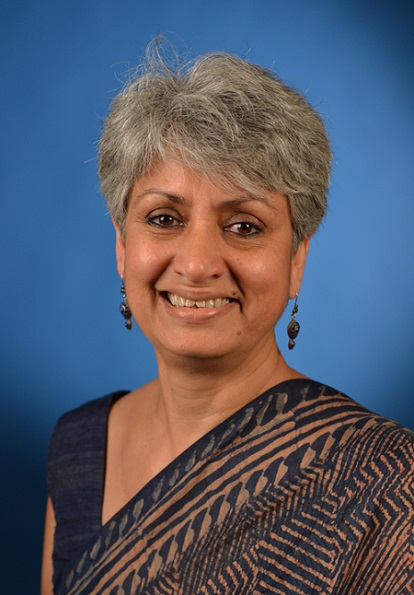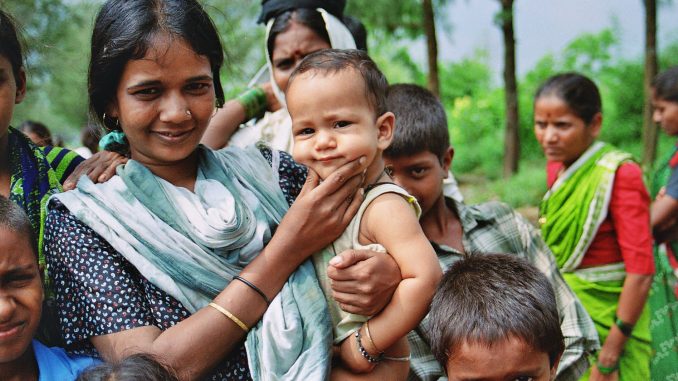An estimated 300,000 plus children could die in India in a few months time unless state governments push health officials to work overtime. The COVID-19 pandemic could even reduce advancements made by India in the health sector, UNICEF said quoting a top study by Johns Hopkins Bloomberg School of Public Health.
The study, already printed in the widely circulated Lancet Global Health Journal, should serve as a wake up call to the Indian health sector officials, Dr Yasmin Ali Haque, UNICEF Representative in India, said in an interview this afternoon.
“This is a crisis unfolding across South Asia and governments must take urgent action to prevent millions of families from slipping back into poverty,” Dr Haque said in the interview conducted through Zoom.
Unknown to many, the secondary impacts of the COVID-19 crisis are aggravating the challenges of getting affordable and nutritious food, mainly due to reductions in routine health service coverage levels, disruption in live saving immunization activities and an increase in child wasting.

Dr Haque, a trained surgeon, said millions of vulnerable children in South Asia are losing out on their development and learning opportunities, and their right to survive and thrive. “They need to be protected. Hunger is always more dangerous than Coronavirus in poorer nations. The most vulnerable families must have access to healthcare, schooling for children, affordable nutrition and other essential services.”
In India, around 20 million children under five years of age are suffering from wasting, over 40 million children are chronically malnourished, and more than half of Indian women aged 15-49 years are anaemic.
Now India has made a steady progress in newborn mortality reduction in the last five years before COVID-19, reducing the National Mortality Rate from 26 in 2014 to 23 in 2017, saving about 75,000 newborn lives each year. But now, there is a danger of losing some of these gains made due to the impact of COVID -19 on health systems in a region that contains a quarter of the world’s population.
And then, there are other issues.
Last week, Indian news channels reported a student’s suicide for not having a smartphone and, in turn, missing out on virtual classrooms. The suicide highlighted a dangerous trend in a country where an estimated 56% of India’s children has no access to smartphones, essential tools for online learning during the Coronavirus-induced lockdown.
Experts say the digital divide in the country may turn online classes into an operational nightmare in India, where only 24% households have access to the internet. School closures have impacted 247 million children enrolled in elementary and secondary education and 28 million children who were attending pre-school education in anganwadi centres. There are concerns that some disadvantaged students may join India’s 6 million children who were already out of school before COVID-19 struck.
Let’s have a realistic look at the situation at the ground level in India.
Since March 2020, massive loss of jobs and income have made it harder than ever for poorer families. An estimated 118 million lost jobs in India’s big cities and went back to the hinterland, the reverse migration causing both stress and tension to various state governments.
“And then, health inequalities and socio-economic disparities have uncovered unique challenges. The spread of misinformation driven by fear, stigma, discrimination and blame have heightened the complexities. Stigmatization against health-care workers, of specific groups, communities, and migrant workers posed a challenge to much-needed social cohesion at the time of the crisis,” said Dr Haque, whose organisation, UNICEF, supported the Ministry of Health and Family Welfare in a national public advocacy campaign and promoted positive and anti-discriminatory behaviour to address stigma.
At the heart of this crisis are children who are at a heightened risk of exploitation, violence and abuse. This is not only happening in India. For example, school closures during the Ebola outbreak in West Africa from 2014 to 2016 resulted in spikes in child labor, neglect, sexual abuse and teenage pregnancies.
“The side-effects of the pandemic across South Asia, including the lockdown and other measures, have been damaging for children in numerous ways,” said Jean Gough, UNICEF Regional Director for South Asia. “But the longer-term impact of the economic crisis on children will be on a different scale entirely. Without urgent action now, COVID-19 could destroy the hopes and futures of an entire generation.”
Dr Haque says UNICEF is trying hard to explain to people in the hinterland that their children are highly likely to become malnourished without the proper care, which means the family is a priority for health services. Travelling across India, UNICEF officials, along with government officials, explain the importance of eating well and why kids must continue to receive extra food rations so that the children do not fall through the cracks.
The UNICEF study, which reads like a mirror to life, shows how India’s phone helplines are reporting a surge in calls from children suffering violence and abuse during confinement at home. Some children are struggling with depression, even resulting in attempts at suicide.
The report highlights the need for resumption of life-saving vaccination campaigns against measles, polio and other diseases. The study also says why schools should reopen as soon as possible provided adequate hand washing and other physical distancing precautions are in place. UNICEF projections show that over the coming six months as many as 120 million more children could be pushed into poverty and food insecurity, joining some 240 million children already classified as poor.
The UNICEF bottomline – as always – reads like a Pied Piper wishlist: Governments should immediately direct more resources towards social protection schemes, including emergency universal child benefits and school feeding programmes. Will it happen in India?
“We can only ask people to turn philanthropic and donate for such causes. There are a large number of private companies coming in for such causes. Every month, there are thousands who walk across the UNICEF office and donate. We sincerely hope more will join us,” added Dr Haque.

